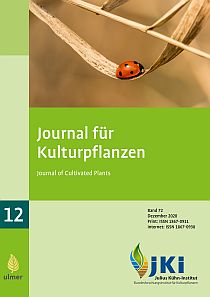Preventive measures of crop protection in arable crops – a synthesis with a focus on arthropod conservation
DOI:
https://doi.org/10.5073/JfK.2020.12.01Keywords:
Integrated plant protection, insect conservation, winter oilseed rape, cereals, maize, ecosystem services, crop rotation, soil cultivationAbstract
Beneficial arthropods and their promotion are part of the concept of integrated pest management (IPM). Numerous agricultural practices effect beneficial arthropods, also those which are applied as preventive plant protection measures. In a literature review we searched for effects of measures, such as crop rotation, cover crops and under sowing, soil cultivation, Nitrogen fertilization, adapted sowing dates and crop densities on the promotion of arthropods or their conservation. Structural diversity as well as the intensity of disturbance by soil cultivation are important elements for the enhancement of beneficial arthropods. Increased structural diversity through management provide hiding places and habitats for arthropods. A small-scale diversified crop rotation in the landscape allows arthropods to migrate to adjacent fields in case of disturbance by cultural measures. In-field measures for biodiversity offer food and hiding places. The conditions in the field need to be adapted to ensure that arthropods can survive in the agricultural landscapes.
Downloads
Published
Issue
Section
License
The content of the journal is licensed under the Creative Commons Attribution 4.0 License. Any user is free to share and adapt (remix, transform, build upon) the content as long as the original publication is attributed (authors, title, year, journal, issue, pages).
The copyright of the published work remains with the authors. The authors grant the Journal of Cultivated Plants, the Julius Kühn-Institut and the OpenAgrar repository the non-exclusive right to distribute and exploit the work.







